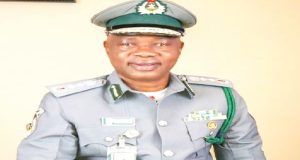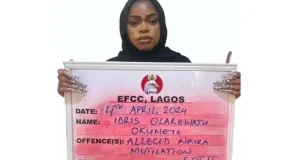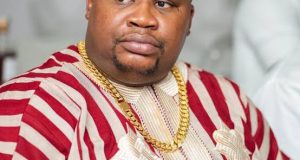There have been mixed feelings surrounding the proposed amnesty for faceless members of the Islamic militant sect (a.k.a Boko Haram), leading some people to opine that Federal Government’s attempt is a waste of time and resources. This is coming on the heels of reactions that the sect members have not sought repentance and forgiveness before the Government threw the offer at them. Following the trends of wanton killings and mass exodus of people in the northeastern part of the country, President Goodluck Jonathan constituted and inaugurated a 25 man committee chaired by Kabiru Turaki on the 24th April, 2013 to identify the key leaders of the sect and constructively engage them in dialogue to develop a workable framework for amnesty in the short run, and develop a comprehensive victims support program and disarmament of the group in the long run.
The proposed amnesty committee from its statement is looking for members of the public who can link them to members of the Islamic militant sect, and at the same time impressing on Mr. President to grant amnesty to them as a panacea for peace in northern Nigeria and Nigeria as a whole. It has been noted that if not built on constitutional provisions, the committee would not only trigger ethnic militias but also ask Mr. President to accede to requests for amnesty from MASSOB, OPC, middle belt and other groups with legitimate complaints against the federal government, if tomorrow they pick up arms to advance their causes because the issue of amnesty for people who have not been convicted as done to the Niger Delta militants is faulty and therefore amounts to fraud since it is not known to Nigerian law.
It should be recalled that the federal government in collaboration with the security watchdogs has listed top Boko Haram commanders with a prized tag for necessary information that can lead to their immediate arrest at the tune of $300,000 which later followed with an aborted proposed round table talk with the Federal Republic of Nigeria in Saudi Arabia pointing at General Mohammedu Buhari (rtd) as her chief negotiator and three Boko Haram members.
In examining the various perspectives that have attempted to capture the causes of and likely solutions to the Boko Haram insurgency in Nigeria vis-a-vis the subsequent proposed amnesty; the researcher has chosen the Political Feud Perspective as the most valid theory with which to examine the menace. This is as a result of the theory’s comprehensiveness, objectivity and contemporariness.
The Political Feud Perspective theory as propounded by Machiavelli, Karl Marx, Thomas Hobbs, etc., is summarized in the following insightful comment:
The crux of the problem is the overpoliticisation of social life […] We are intoxicated with politics: the premium on political power is so high that we are prone to take the most extreme measures to win and to maintain political power. Claude Ake
This theory thus supports the idea that Boko Haram is founded for political reasons which seem to have influenced erstwhile violent groups supposedly founded for religious or ethnic agitations. In political terms, the Boko Haram phenomenon is perhaps more interesting because of the specific historical context in which it is occurring. First, while other Muslims may want to dissociate themselves from its activities, Boko Haram remains an Islamic movement. It is also occurring in a multi-religious political setting in which religion itself is a major factor in determining the distribution of political power. Second, its emergence was preceded by intense political bickering between some, mainly Muslim political actors in the north and their counterparts in the south in the period leading to the electoral victory of President Goodluck Jonathan, a Christian and southerner. In a political environment in which the power of incumbency is a major factor in determining electoral success, the fact that the victor in the contest superintended over the machinery of the state at the time of the election is a critical variable in conveying a sense of fair play or otherwise to the losing side. Importantly, Jonathan’s electoral victory came barely three years after power returned to the north, from an eight-year sojourn in the south, where the north grudgingly ceded it in 1999 following the tumult that resulted from the annulled 1993 presidential election, which Moshood Abiola, a southerner was acclaimed to have won. Through ingenious political engineering by the Nigerian power elite, a power-sharing arrangement was devised which rotates central power between the north and the south. After eight years in the south via Olusegun Obasanjo’s presidency (1999-2007), power had returned to the north in May 2007 via the Umaru Musa Yar’Adua’s presidency and was supposed to remain there for another eight years. Despite the constitutional provision that guarantees his succession by his deputy, Goodluck Jonathan, a southerner, the north was sour for having ‘lost’ power again to the south by virtue of Yar’Adua’s death in May 2010 barely three years into office. The sense of loss, which ensued from Yar’Adua’s death manifested in the tension in which Nigeria was soaked in the pre-2011 general elections period.
The outcry at that time resonated around forcing Jonathan to give up his 2011 presidential ambition to allow for a return of power to the north and had pitted some formidable political forces in the north against similar forces in the most of the south – especially from Jonathan’s minority ethnic Ijaw nationality of the south-south of Nigeria who saw in Jonathan’s ambition an opportunity to placate the restive region over perceived decades of political and economic marginalization in the Nigerian Union. The post-2011 election violence in parts of the north, therefore, did not only symbolize a rejection of the polls result and/or Goodluck Jonathan/a Christian southerner’s presidency, but was also a precursor to the current mayhem.
The political feud perspective has acquired more dimensions as it also reveals emergent dynamics in Nigeria’s power relations. Jonathan’s Ijaw ethnic group claims Boko Haram is a northern attempt to undermine the president’s power. At the same time, there is an emergent school of thought that the specific focus of the terror campaign is the 2015 presidential election, an attempt to ensure that power returns to the north by 2015, especially amidst speculations that Jonathan may yet contest the presidency at that time. Senator Uche Chukwumerije, who is claimed to have canvassed this view, links Jonathan’s accession to power from the vice-president in 2007 to the elected president in 2011, to the Niger Delta militancy spear-headed by the Movement for the Emancipation of the Niger Delta, MEND from the late 1990s. Obasanjo’s emergence as Nigeria’s president in 1999 to him is also owed to the militancy by the Yoruba’s ethnic militia, the Oodua People’s Congress, OPC as an aftermath of the 1993 presidential election annulment. Thus his suggestion to his ethnic Igbo nationality to mobilize its own militia, Movement for the Sovereign States of Biafra, MASSOB, to “devise a means of constructive engagement with the youth” towards 2015. Chukwumerije’s call for the mobilization of the Igbo militia should be seen within the context of the mobilization of ethnic militia for political ascendency in Nigeria.
There remains a need, however, to examine the Boko Haram crisis in terms of its implications for the 2015 presidential election in specific historical and contemporary context, given the changing dynamics in northern politics.
Against this background, Government ought to pay more crucial attention to security reports submitted by security agencies as well as eminent Nigerians and committees without unnecessarily politicizing them. It pays to reason that unless the question of socio-economic inequality is adequately addressed; different ethnic groups will continue to agitate for political relevance since that may be the only way out of their socioeconomic quagmire. Quality, transparent, responsive, proactive and purposive leadership in the country will be better appreciated, rather than embark on emergency rule which will only trigger killing of more innocent civilians and just few of the insurgents. At this juncture, it becomes obvious that Nigeria has come a long way in the Boko Haram struggle. Correspondingly, the fundamental problem of border security, poor intelligence gathering, arms trafficking, socio-economic problem, Religion and ineffective socio-political system are good indicators to the uprising. Therefore, efficient and effective fight against terrorism in Nigeria can be linked to what Mr Olusegun Adeniyi tersely identified as institutional fragmentation, intelligence and policy non-coordination between and among security agencies. These challenges are real and must be addressed for the fight against terrorism to be effective. It is however hoped that further security strategies be guided by constitutional provisions rather than by parochial and political considerations.
It is well known in legal circles that the government can only exercise prerogative of mercy after a person has been convicted or when a person is under trial by putting a Nolli prosequi, because you cannot just see somebody and declare him a criminal and give him pardon. It is very wrong; it is a mistake on the part of the government made to Niger delta militants which should not be repeated. Also, the promulgation of militia-related laws, and the express enforcement of the laws, coupled with arms proliferation and control, will go a long way to salvaging the country’s soiled security image.
Having examined Boko Haram in this perspective, its operations, and especially its reasons for wreaking havoc on the Nigerian populace I now concludes that rather than arrive at peace, the proposed amnesty for Boko Haram would further fan the embers of budding ethno-religious militias fighting for recognition in the political scheme of things. Its observation is that different ethnic and religious groups will continue to agitate for their share of the national cake having witnessed amnesty being given to preceding groups. Rather than propose amnesty, a more definite solution including but not limited to a Sovereign National Conference, would go a long way to not only ensuring peace and progress in the country, but also further stabilize the country’s democracy:
The federal government should be firm in actually employing force when it comes to the issue of insurgency. The president should always exercise his powers as the Commander-in-Chief of the Armed Forces to forestall untold misery and subsequent criticisms.
Government should as a matter of urgency carryout effective educational and sensitization programmes for the Nigerian public to be peace abiding citizens and eschew all forms of extremist teachings. The federal, state and local governments should be more proactive in the area of job creation for the teeming youths. The Nigeria government should pay compensation to victims of these nefarious crimes. The Nigerian police force, state security service and other intelligence-based agencies should employ intelligence gathering techniques and counter intelligence strategies by means of terrain and covert espionage to gather intelligence using reverse and dead spies mercenaries. The Nigerian state and Security Agencies should use sophisticated electronic gadgets that can help security agents to locate black spots and criminals as well as gather intelligence and bog a suspected environment such as biometric, closed circuit surveillance television system (CCTV), General packet Radio Service (GPRS), radars and alarm systems, satellite, computer security aided programs to identify known terrorists and nab them for necessary prosecution. Federal government should not allocate financial allowances to beneficiaries of the proposed amnesty because unsustainability of payment to beneficiaries would renew restiveness.
WILLIAMS EKPOSON
intelligencewatchdogs@yahoo.com
08034505234
 Newsfront Online …Telling the Public as it is
Newsfront Online …Telling the Public as it is



